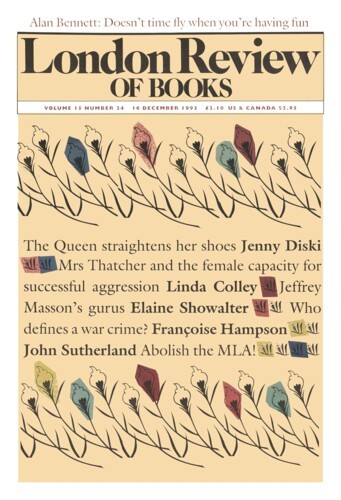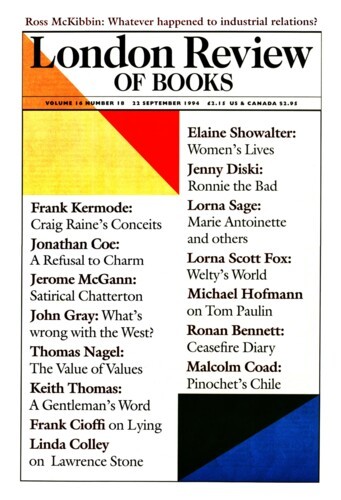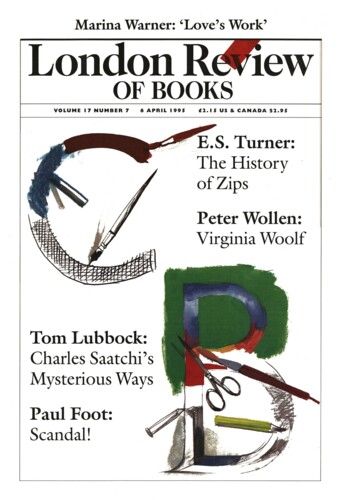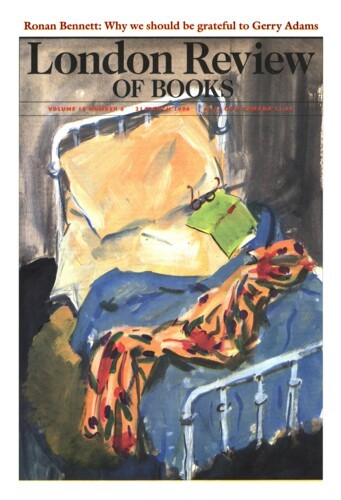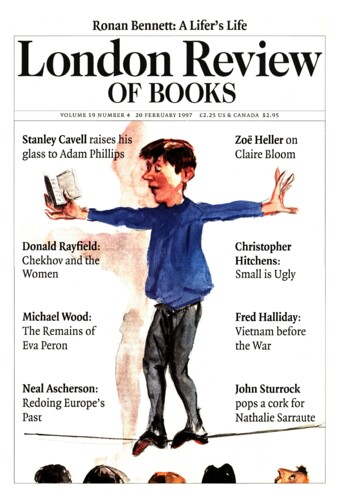Disaster
Ronan Bennett, 16 December 1993
We know all about Republican violence, about its worst excesses; in Britain, some people, maybe even most, know what the initials IRA stand for. I wonder how many could name the principal Loyalist organisations, still less distinguish between them. You could say that there has been little reason for the average Londoner to get acquainted with the world of Loyalist terror: the UFF do not bomb the City, the UVF don’t shoot policemen. Loyalist paramilitaries now claim more victims than the IRA, but they confine their murdering to Catholics – in Northern Ireland. So while we rightly remember the two boys murdered at Warrington, we conveniently forget the five Catholic workmen killed in County Derry after the two boys died.’
